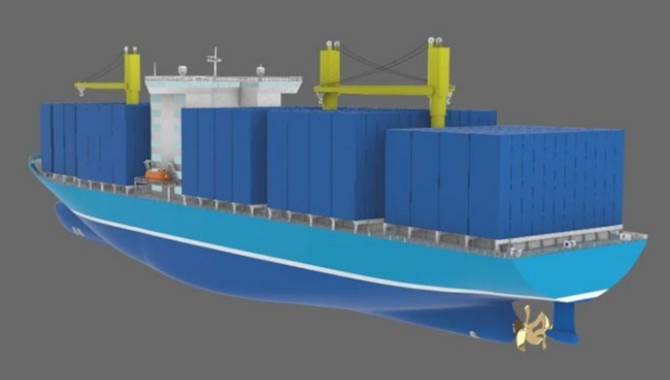As the climate emergency impacts every corner of the world, the basic human necessity of access to fresh water is one of the most urgent challenges facing the planet.
While land-based desalination plants have been built all over the world including Australia, North Africa and Saudi Arabia the cost of construction, maintenance and provision of fuel for these facilities is expensive and they also use polluting fossil fuels for power.
In a new report published by Core Power, ‘The Future of Water - Nuclear Powered Floating Desalination’ the company maps out solutions that use floating desalination facilities built on traditional ship hulls, powered by inherently safe advanced micro reactors, that can provide both desalinated water and electrical power at its deployment location.
These self-propelled vessels could produce potable water at a rate of between 60,000 and 450,000 m3 per day matching the scale of existing land-based desalination facilities.
These ships would benefit from the efficiencies of shipyard construction, decreasing deployment time and cost while being flexible in their movement, meaning they would be able to quickly scale up and down dependent on need.
“Of all the problems we face, the global freshwater emergency is going to be the most precarious. We will need long-term, sustainable, and flexible solutions to ensure we can provide potable water to where and when it is needed at a massive scale,” said Mikal Bøe Chairman and CEO or Core Power.
“Core Power floating nuclear-powered desalination facilities could provide fresh water to all littoral states, safely, sustainably and without emissions. The dramatic changes in weather patterns means that rapid deployment is essential, without the years of planning and construction needed to build land-based desalination plants,” added Bøe.
While conventional ship hulls offer the flexibility of deployment and easier transits between locations, floating structures can offer more resistance to adverse weather effects.
The Core Power water solution is designed based on a ship hull-based containing a floating nuclear reactor and Reverse Osmosis water desalination systems. These vessels would be capable of moving under their own power therefore simplifying the deployment and installation process.
Using the proposed power output from an advanced micro reactor with an electrical output of 80 MW the facility could provide up to 450,000 m3 of drinkable water per day.
Core Power modelling considering changes in climate and growing population, expects the global desalination demand to reach 266 million m3 per day by 2050. If this demand is to be met there will have to be a significant increase in the deployment of desalination facilities worldwide.
To access the special report on the Future of Water, please click on link:
https://corepower.energy/report/the-future-of-water
The opinions expressed herein are the author's and not necessarily those of The Xinde Marine News.
Please Contact Us at:
media@xindemarine.com


 Ningbo Containerized Freight Index Weekly Commentar
Ningbo Containerized Freight Index Weekly Commentar  Ningbo Containerized Freight Index Weekly Commentar
Ningbo Containerized Freight Index Weekly Commentar  Ningbo Containerized Freight Index Weekly Commentar
Ningbo Containerized Freight Index Weekly Commentar  BIMCO Shipping Number of the Week: Bulker newbuildi
BIMCO Shipping Number of the Week: Bulker newbuildi  Ningbo Containerized Freight Index Weekly Commentar
Ningbo Containerized Freight Index Weekly Commentar  Ningbo Containerized Freight Index Weekly Commentar
Ningbo Containerized Freight Index Weekly Commentar